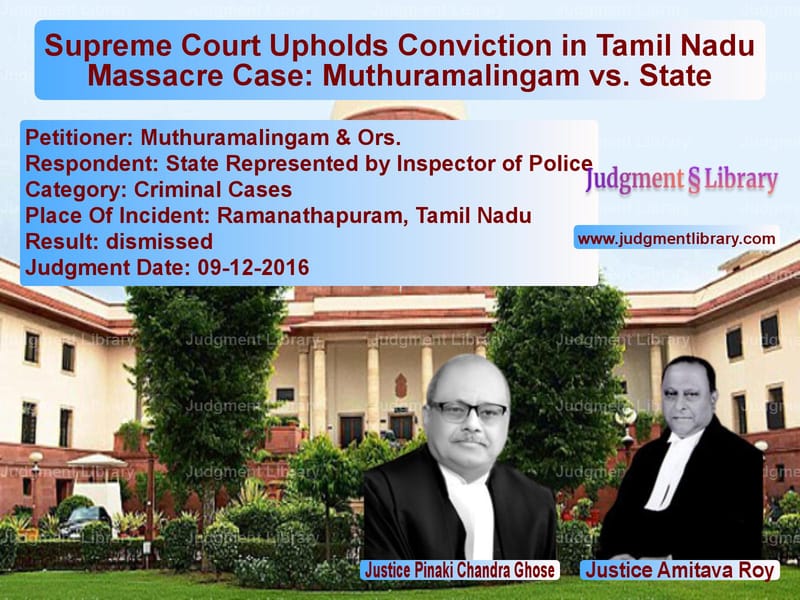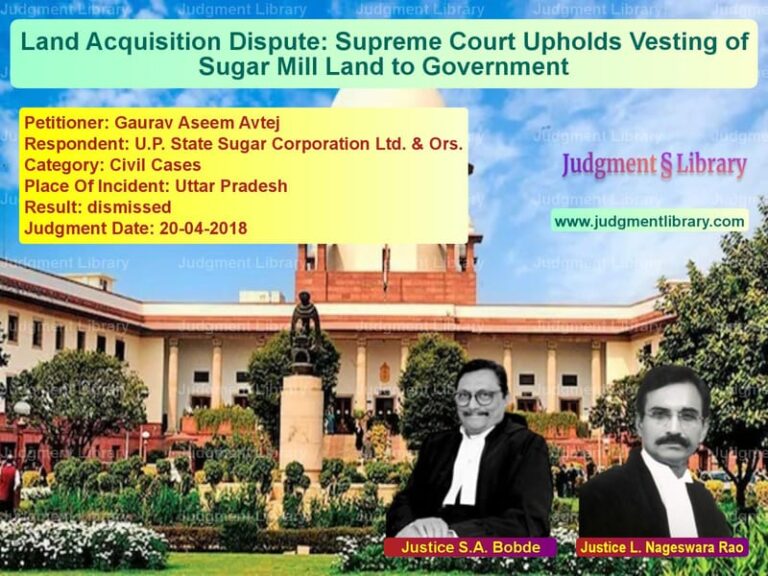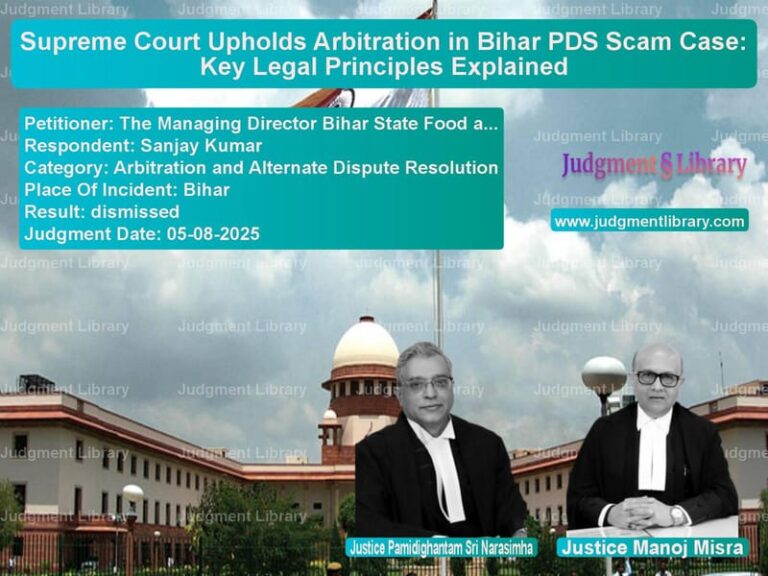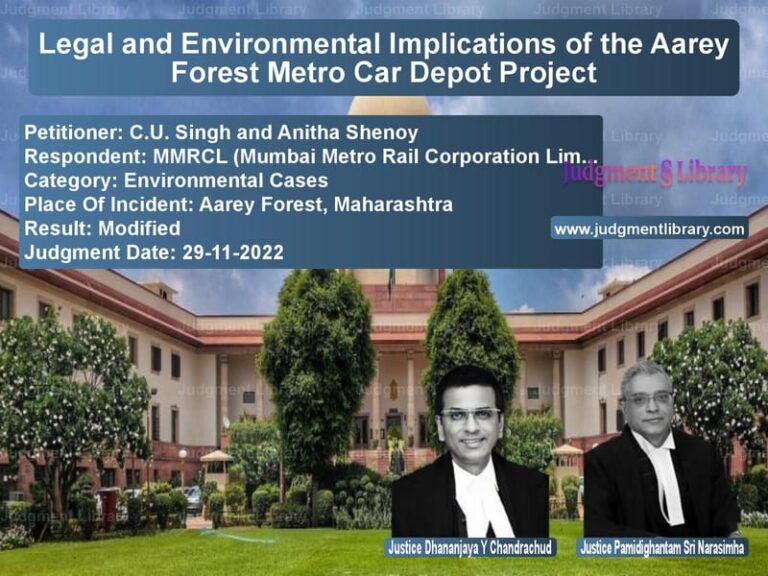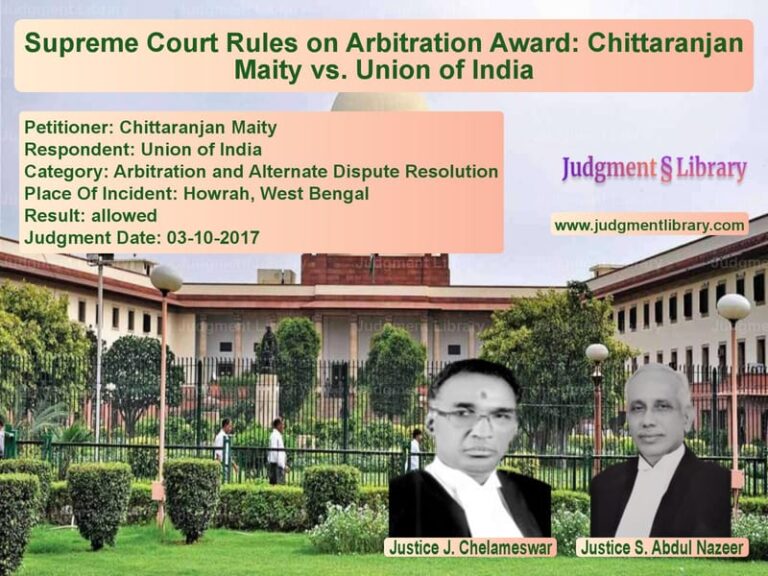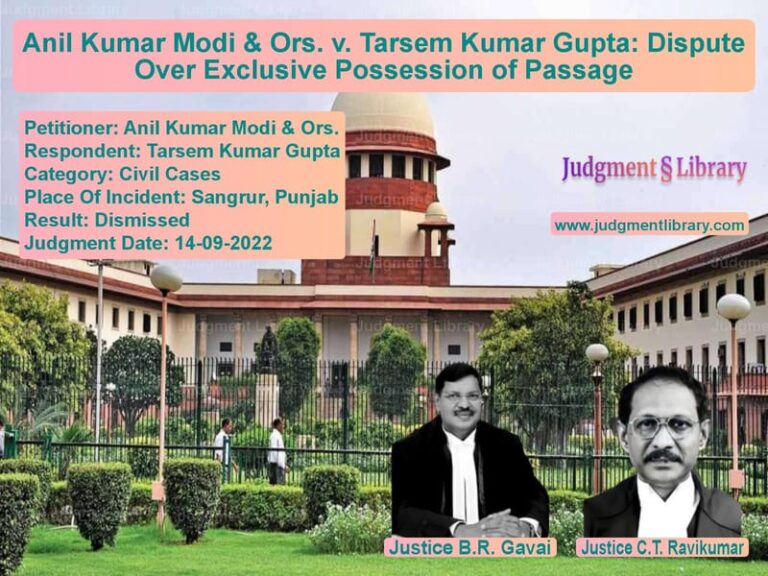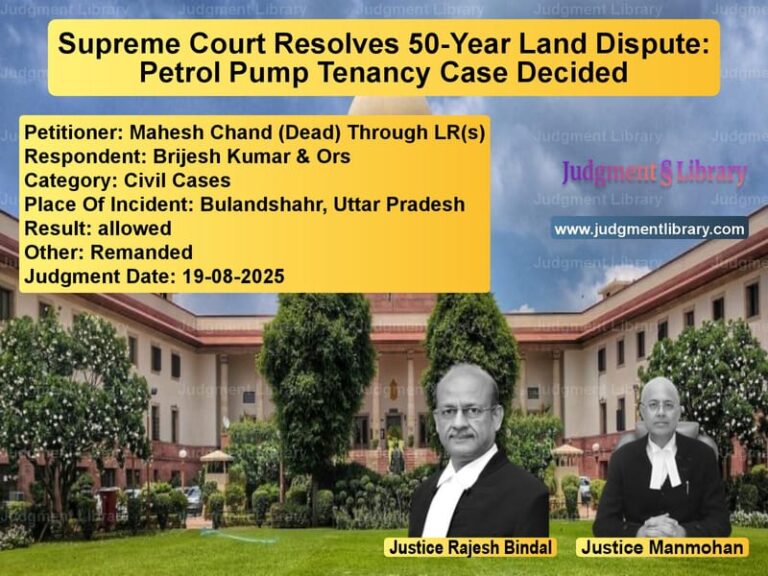Supreme Court Upholds Conviction in Tamil Nadu Massacre Case: Muthuramalingam vs. State
The Supreme Court, in its judgment on December 9, 2016, in the case of Muthuramalingam & Ors. vs. State Represented by Inspector of Police, upheld the conviction of several accused in a brutal massacre case that took place in Ramanathapuram district, Tamil Nadu. The case involved the murder of eight people, including a young child, as part of a revenge attack. The ruling clarified key aspects of criminal law, particularly regarding common intention under Section 34 of the Indian Penal Code (IPC) and unlawful assembly under Section 149 IPC.
Background of the Case
The gruesome incident occurred on February 10, 1994, in Ramanathapuram district, Tamil Nadu. The prosecution alleged that the accused, armed with deadly weapons, attacked the family members of a deceased individual, Rajendran, while they were returning from his cremation. The accused, who were previously implicated in Rajendran’s murder, formed an unlawful assembly and ambushed the victims near Karisalkulam Branch Road.
During the attack, the accused murdered eight people, including a 1.5-year-old child, and injured several others. The first information report (FIR) was lodged immediately, leading to the arrest and prosecution of the accused.
Legal Issues Considered
- Whether the accused acted with common intention under Section 34 IPC or were part of an unlawful assembly under Section 149 IPC.
- Whether the conviction under Section 302 IPC (murder) was justified based on witness testimonies.
- Whether the High Court was correct in modifying the conviction from Section 302 read with Section 34 IPC to Section 302 read with Section 149 IPC.
- Whether multiple life sentences could be imposed consecutively.
Trial Court’s Judgment
The Additional Sessions Judge, Fast Track Court, Ramanathapuram, convicted 18 of the 20 accused. The key findings of the trial court were:
- All accused were part of an unlawful assembly with the common object of eliminating the victims.
- The attack was brutal, with sharp weapons used to kill men, women, and a child.
- The accused were sentenced to life imprisonment for multiple counts of murder under Sections 302, 149, and 307 IPC.
- The sentences were ordered to run consecutively, meaning the convicts would serve multiple life terms one after another.
High Court’s Ruling
The convicted persons appealed to the Madurai Bench of the Madras High Court, which modified their convictions:
- The court changed the conviction from Section 302 read with Section 34 IPC (common intention) to Section 302 read with Section 149 IPC (unlawful assembly).
- It upheld the life sentences but ruled that the sentences should be served consecutively.
- Four accused were acquitted due to lack of evidence.
Arguments of the Petitioners (Convicts)
- The prosecution witnesses were unreliable, and there were inconsistencies in their testimonies.
- The trial court wrongly applied Section 34 IPC when the attack was carried out by a large group.
- Consecutive life sentences were illegal as per Section 31 CrPC.
- Delays in filing the FIR created doubts about the prosecution’s version.
Arguments of the Respondents (State of Tamil Nadu)
- The witnesses clearly identified the accused and provided consistent accounts of the attack.
- The brutality of the attack and its premeditated nature confirmed that the accused acted with common intention.
- The High Court correctly modified the conviction from Section 34 IPC to Section 149 IPC.
- Multiple life sentences were justified due to the nature of the crime.
Supreme Court’s Judgment
The Supreme Court, comprising Justice Pinaki Chandra Ghose and Justice Amitava Roy, upheld the convictions but modified the sentencing:
- The court agreed with the High Court’s decision to apply Section 149 IPC instead of Section 34 IPC, ruling that the accused were part of an unlawful assembly.
- It ruled that while multiple life sentences can be awarded for multiple murders, these cannot be served consecutively.
- The court directed that the life sentences should run concurrently, aligning with the principles laid down in earlier rulings.
- The convictions were upheld, and the appeals were dismissed.
Key Legal Takeaways
- Unlawful Assembly vs. Common Intention: The ruling clarified that Section 149 IPC is applicable when multiple people act with a common objective, even if they do not commit the crime personally.
- Multiple Life Sentences: The court reiterated that life sentences cannot be served consecutively.
- Reliability of Witnesses: The court reaffirmed that minor discrepancies in witness testimonies do not affect the credibility of the prosecution’s case.
- Timely FIR Registration: The judgment emphasized that minor delays in FIR registration do not automatically render a case unreliable.
Conclusion
The Supreme Court’s ruling in Muthuramalingam vs. State reinforced legal principles on mass murder cases, common object liability, and sentencing guidelines. By upholding the convictions while modifying the sentencing to concurrent life terms, the court struck a balance between justice and established legal principles. This case sets a significant precedent for handling cases involving multiple murders and unlawful assembly in India.
Don’t miss out on the full details! Download the complete judgment in PDF format below and gain valuable insights instantly!
Download Judgment: Muthuramalingam & Or vs State Represented by Supreme Court of India Judgment Dated 09-12-2016.pdf
Direct Downlaod Judgment: Direct downlaod this Judgment
See all petitions in Murder Cases
See all petitions in Judgment by Pinaki Chandra Ghose
See all petitions in Judgment by Amitava Roy
See all petitions in dismissed
See all petitions in supreme court of India judgments December 2016
See all petitions in 2016 judgments
See all posts in Criminal Cases Category
See all allowed petitions in Criminal Cases Category
See all Dismissed petitions in Criminal Cases Category
See all partially allowed petitions in Criminal Cases Category

